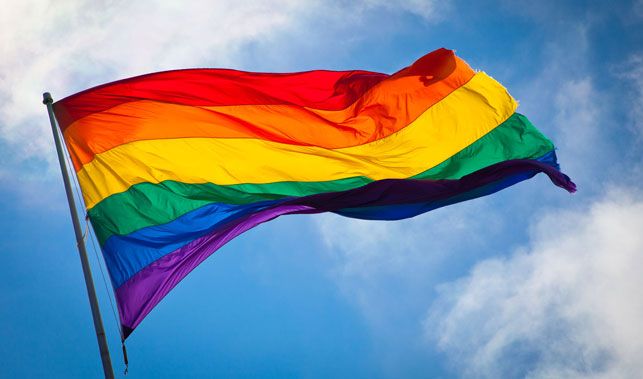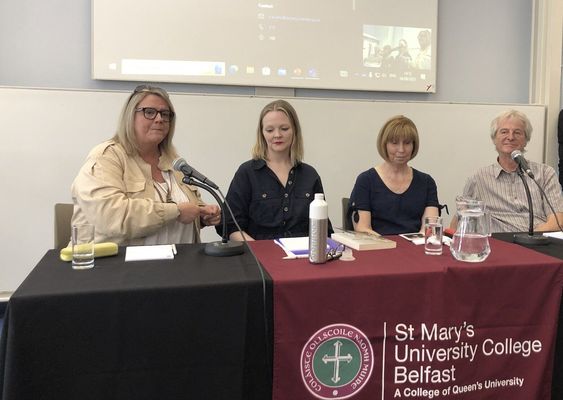AS part of LGBTQIA Awareness week, I was invited to speak at St George’s church Belfast for International Day Against Homophobia, Transphobia and Biphobia.
I had been thinking a lot about the story of the Lost Sheep told by Jesus in Luke 15. I love the opening verse in the Message translation: “By this time a lot of men and women of questionable reputation were hanging around Jesus, listening intently. The Pharisees and religious scholars were not pleased, not pleased at all. They growled ‘He takes in sinners and eats meals with them like old friends.’
Questionable reputation? I love this! There’s just something about the misfits, the oddballs, the rejected, the marginalised and the ones with ‘questionable reputation’ who Jesus chose to hang out with, and this clearly irked the religious elite of His day.
Jesus responds to them by telling the story of the Lost Sheep. He asks them: “Suppose one of you had a hundred sheep and lost one of them, wouldn’t you do the right thing and go after the one?”
I find this interesting for two reasons. Firstly, Jewish writings tell us that the religious elite often demeaned the role of a shepherd, yet here we have Jesus inviting them to imagine they were a shepherd. Jesus appears to be reminding them that they are no better than anyone else, whatever their job/position in life.
Secondly, it is important to note that having a hundred sheep in the Ancient Near East would indicate great wealth, so why on Earth would a shepherd worry about one sheep? Why leave what is comfortable to go rescue one sheep? After all, he still had his 99 sheep? Recently, I read this: “Leaving the 99 to find one seems illogical, irrational and senseless…until that one is you.”
I believe Jesus was teaching his religious elite critics that they/we will never be complete without the one. The one rejected, ostracised, excluded for whatever reason: sexuality, gender, race, religion, and so on. Perhaps, the heartbeat of this ancient story is the importance of themes such as community, inclusion and belonging. Our churches, gatherings and communities will never be complete until the one on the outside is included.
Whatever caused the wandering or the sense of lostness, a good shepherd, leader or community champion will always go after the outsiders. As we mark LGBTQIA Awareness week, let’s remember that we are not complete without them. We all belong. Yes, we will always have our critics, but Reverend Eston Williams sums it up fabulously: “At the end of the day, I’d rather be excluded for who I include than be included for who I excluded.”








